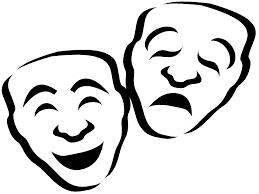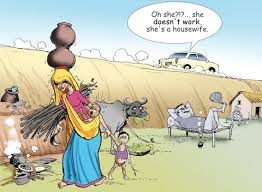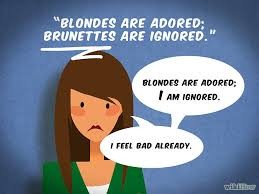Attitude and Prejudice
 For ages people have been finding the difference between attitude and prejudice as both these are feelings of human beings and are expressions that are easily confused.
For ages people have been finding the difference between attitude and prejudice as both these are feelings of human beings and are expressions that are easily confused.
Attitude is common in all human beings. People have both positive and negative attitudes towards different things. Attitudes could be in favor of something or not in favor something. And, on the other hand, prejudice is a prejudgment of something without really knowing the facts or having exposed to the reality of a situation. Prejudice is always an adverse conclusion about somebody. However, the fact remains that both attitudes and prejudices can be seen in almost every person. Prominent psychologist Gordon Allport described attitudes as “the most distinctive and indispensable concept in contemporary social psychology”. Attitude forms an important part of our personality and the way we think is a very important element in creating the kind of life we want to live.
 Jane Austen’s second novel ‘Pride and Prejudice’ was originally titled ‘First Impression’ because the appearances of the characters created the plot of the novel. However, because the novel is also concerned with the effects of the character’s first impressions, which is the prejudice, Austen found the title Pride and Prejudice more appropriate. With five daughters to be married and an indifferent husband, Mrs. Bennet (the mother of the daughters) can think of nothing else but to marry her daughters off as quickly as possible and to anyone who asks. For her, love is not a necessity when it comes to marrying well, only money is. Her daughters, however, have different ideas. Thus begins Pride and Prejudice, Jane Austen’s classic story of money, marriage, love, and deception. The novel centers on the many blunders and mix-ups that frequently evolve in relationships. Austen’s witty and often sarcastic characters turn these potential disasters into amusing and exciting situations. The novel centers on how prejudices can create havoc in life of people.
Jane Austen’s second novel ‘Pride and Prejudice’ was originally titled ‘First Impression’ because the appearances of the characters created the plot of the novel. However, because the novel is also concerned with the effects of the character’s first impressions, which is the prejudice, Austen found the title Pride and Prejudice more appropriate. With five daughters to be married and an indifferent husband, Mrs. Bennet (the mother of the daughters) can think of nothing else but to marry her daughters off as quickly as possible and to anyone who asks. For her, love is not a necessity when it comes to marrying well, only money is. Her daughters, however, have different ideas. Thus begins Pride and Prejudice, Jane Austen’s classic story of money, marriage, love, and deception. The novel centers on the many blunders and mix-ups that frequently evolve in relationships. Austen’s witty and often sarcastic characters turn these potential disasters into amusing and exciting situations. The novel centers on how prejudices can create havoc in life of people.
Is the rationalist assumption sound? Certainly, there is something to be said for it. After all, many of what may reasonably be described as the achievements of human moral progress could not have happened unless somebody took the task, and often the burden, of challenging and critically scrutinizing traditionally held beliefs. Slavery and gender inequality used to be taken for granted; interracial marriage used to be considered morally repulsive and was illegal in some parts of the world. Those and other past prejudices are fortunately gone. Of course, rational scrutiny by itself has never been and will never be enough to bring about significant moral and political change. It must be balanced by campaigning, bargaining, compromise, agitation, mobilization and if nothing of this works, then we see sometimes violence. But rational scrutiny is most important because good reason must be shown to promote a cause.
 Attitudes are often the result of experience and also upbringing. They have a powerful influence over behavior. The fact is that while attitudes have lasting effect, they can be changed. Most humans make their decisions in life based on their attitudes. Attitude gets formed on some sort of beliefs as well. It also depends on parameters such as grasp, intelligence, broadmindedness, in short how a person sees and understands a certain phenomenon. Attitude can be either negative or positive. Also, a negative attitude can be turned to a positive attitude and vice versa. It has been found that there are two types of attitudes in humans. They are explicit attitudes and implicit attitudes. Explicit attitudes are deliberately formed ones. That means a person has developed an attitude towards something being really aware of that. An implicit attitude, on the other hand, is formed by an individual subconsciously. A person may not be aware of the attitude formed in him/her. However, attitudes are an important phenomenon in all individuals’ lives because attitudes control people’s behavior and thought patterns. Moreover, there are group attitudes that are shared by a particular group of people. It can be said that all the relationships that exist among humans are based on an attitude structure. Further, different individuals may share different attitudes towards a similar phenomenon. One may have a positive attitude regarding a certain thing whereas another person may perceive the same thing in a negative manner.
Attitudes are often the result of experience and also upbringing. They have a powerful influence over behavior. The fact is that while attitudes have lasting effect, they can be changed. Most humans make their decisions in life based on their attitudes. Attitude gets formed on some sort of beliefs as well. It also depends on parameters such as grasp, intelligence, broadmindedness, in short how a person sees and understands a certain phenomenon. Attitude can be either negative or positive. Also, a negative attitude can be turned to a positive attitude and vice versa. It has been found that there are two types of attitudes in humans. They are explicit attitudes and implicit attitudes. Explicit attitudes are deliberately formed ones. That means a person has developed an attitude towards something being really aware of that. An implicit attitude, on the other hand, is formed by an individual subconsciously. A person may not be aware of the attitude formed in him/her. However, attitudes are an important phenomenon in all individuals’ lives because attitudes control people’s behavior and thought patterns. Moreover, there are group attitudes that are shared by a particular group of people. It can be said that all the relationships that exist among humans are based on an attitude structure. Further, different individuals may share different attitudes towards a similar phenomenon. One may have a positive attitude regarding a certain thing whereas another person may perceive the same thing in a negative manner.
 Prejudice is defined as forming of a negative attitude towards a person without having a full realization of facts. That is like making a prejudgment. There can be prejudices over age, social class, ethnicity, race, culture, family background, education, looks and so many other things. The evident thing about prejudice is that a person does not look deep into the phenomenon before making a conclusion. Somebody can have a prejudice over a person or a particular group of people, based on a misapprehension or misunderstandings because of ignorance. Prejudice is always a negative situation which should be avoided as far as possible by people.
Prejudice is defined as forming of a negative attitude towards a person without having a full realization of facts. That is like making a prejudgment. There can be prejudices over age, social class, ethnicity, race, culture, family background, education, looks and so many other things. The evident thing about prejudice is that a person does not look deep into the phenomenon before making a conclusion. Somebody can have a prejudice over a person or a particular group of people, based on a misapprehension or misunderstandings because of ignorance. Prejudice is always a negative situation which should be avoided as far as possible by people.
In conclusion, when we take both attitude and prejudice, we can identify that both are human feelings towards something. Attitude can be aimed at a person, an object, a place or may be a situation whereas prejudice aims at a person or a group of people. Attitude can both be positive or negative but prejudice is always a negative phenomenon. Attitudes are formed after a full investigation of a particular fact whereas prejudice is based on prejudgment. And lastly, prejudice can also be considered as an attitude that is not formed through an experience of the facts. Both attitudes as well as prejudice may change over the time and they are not permanent ideologies.
If people become aware of their biases, they can monitor and attempt to improve hidden attitudes before they are expressed through behavior. This compensation can include attention to language, body language and to the stigmatization felt by target groups. Research evidence suggests that a change in behavior can modify beliefs and attitudes. It would seem logical that a conscious decision to be open might lead one to widen one’s circle of friends and knowledge of other groups. Such efforts may, over time, reduce the strength of unconscious biases. The earlier we recognize that the problem is in ‘me’ and then others will sort out many issues and motive us to change.












































